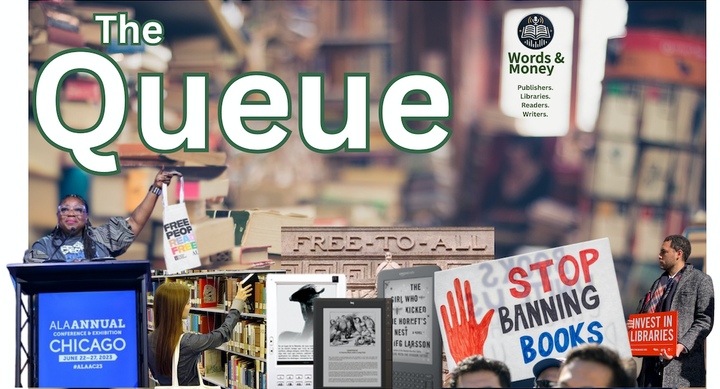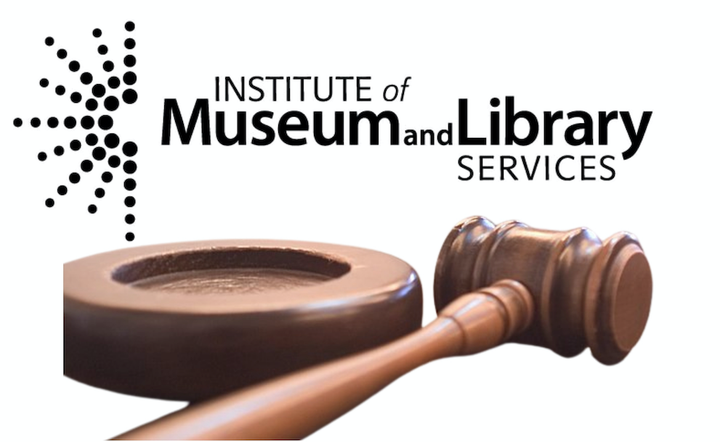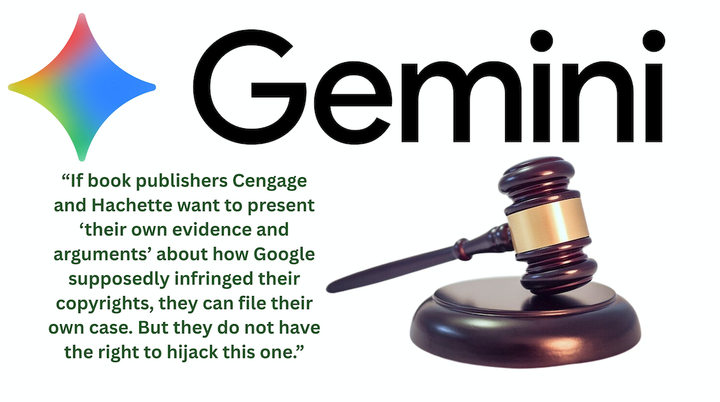‘An Inexcusable Mess’: In Supreme Court Brief, Register of Copyrights Shreds Trump Administration’s Bid to Fire Her
In a fiery brief, lawyers for Register of Copyrights Shira Perlmutter urged the Supreme Court not to stay a September appeals court decision barring the Trump Administration from interfering with her job.

After an appeals court in September court blocked the Trump Administration’s ongoing efforts to fire Register of Copyrights Shira Perlmutter, administration lawyers last month turned to a familiar place for help: the Supreme Court’s emergency docket.
But in a fiery brief this week, lawyers for Perlmutter urged the Supreme Court to reject the administration’s petition, asserting that the lower court correctly found that the administration has no legal authority to fire the Register, nor to appoint an acting Librarian of Congress who can. Furthermore, the case isn’t even close, the brief argues, and it certainly isn’t an emergency.
“The statutory question that is actually presented by this case is not novel, and it is not particularly challenging,” lawyers for Perlmutter argue in their November 10 brief. “The application boils down to this: in response to lawless executive action, Applicants are asking the Court…to grant extraordinary relief that would upend the status quo and defy Congress’s well-expressed intent. Worse yet, Applicants are asking this Court to act on an emergency basis, even though they waited 47 days from the issuance of an injunction—and 26 days after the denial of en banc review—to seek this Court’s intervention, and even though Applicants never exercised their supposed roles at the Library of Congress in the 121 days during which no injunction was in place.”
In their October 27 petition to the Supreme Court, administration lawyers, led by solicitor general John Sauer, argued that the Washington D.C. Circuit Court of Appeals' September 10 decision enjoining Trump from interfering with Perlmutter’s work at the U.S. Copyright Office amounted to “another case of improper judicial interference with the President’s power to remove executive officers,” and argued that, because the Library of Congress and the Copyright Office perform some functions that could be characterized as executive, that the president can make personnel decisions.
But in their response, lawyers for Perlmutter reiterate their argument that the law and the facts in this case are black and white: The Library of Congress, which has authority over the Copyright office, is not part of the executive branch, and thus the president has no power under the Federal Vacancies Reform Act to appoint an acting librarian, nor any authority to directly hire and fire subordinate legislative branch employees like the Register of Copyrights.
“In their zeal to win this particular case, Applicants make an inexcusable mess of Congress’s plans for the governance of its Library,” the brief bluntly opens. “Despite the framing of the application, the question here is not whether the Register of Copyrights or the Librarian of Congress has any functions that can be characterized as ‘executive’ for constitutional purposes; it is whether Congress decided to organize the Library as an ‘Executive’ agency,” adding that the appeals court correctly held that Congress “has made it abundantly clear that the Library of Congress is not to be treated as an ‘Executive’ agency.”
The legal drama began some six months ago, after Perlmutter was purportedly axed via email on Saturday, May 10, just days after the shock firing of Librarian of Congress Carla Hayden.
Perlmutter's firing immediately set off alarm bells as it came on the heels of her decision to release a pre-print edition of a Copyright Office report on copyright and AI, which expressed views with which the President publicly disagreed.
Furthermore, lawyers for Perlmutter argued that the administration’s contention that the appeals court does not have the authority to “reinstate” Perlmutter is misplaced, because, despite the President’s efforts, Perlmutter was never actually removed from office.
“The President and his subordinates have conceded to the district court that Perlmutter has remained in her Library employment since her purported removal,” the filing notes. “The court of appeals accordingly did not reinstate Perlmutter but instead maintained the status quo by ordering that the President’s subordinates be ‘enjoined from interfering with [Perlmutter’s] service as Register of Copyrights and Director of the U.S. Copyright Office’ pending further order of the court.”
Still, the administration has had remarkable success in getting the Supreme Court to grant several stays of appeals court decisions off the so-called “emergency” or “shadow” docket—usually brief, unsigned orders that allow the administration to take its desired course of action while the merits of the lawsuits challenging those actions play out in the lower courts.
Should the Supreme Court somehow grant the stay requested in this case, observers say it could give the administration the ability to try again to remove, or to at least sideline, Perlmutter while the litigation plays out. And the net effect, observers note, would likely be irreversible, as the administration has proven itself adept at dragging out court cases.
Meanwhile, there remains an easier course of action available to the administration: they could simply nominate and confirm a permanent Librarian of Congress to replace Carla Hayden, who could then legally remove Perlmutter.


